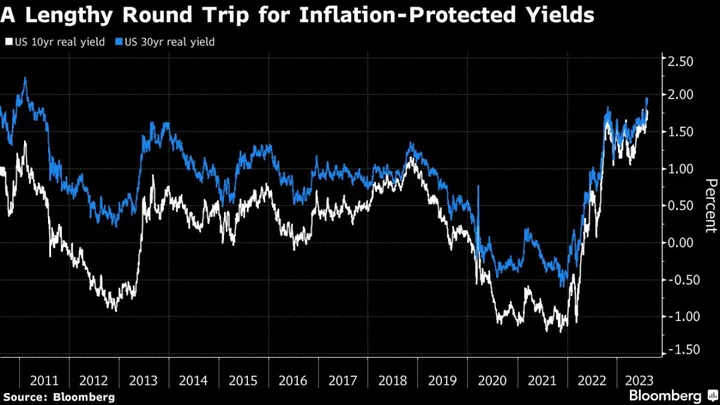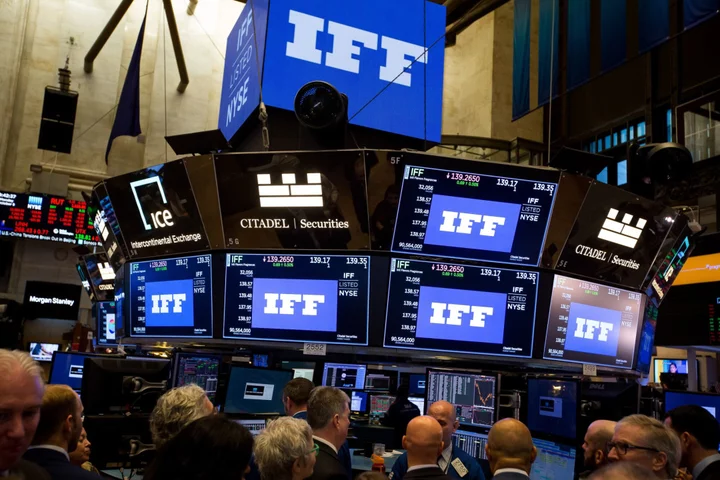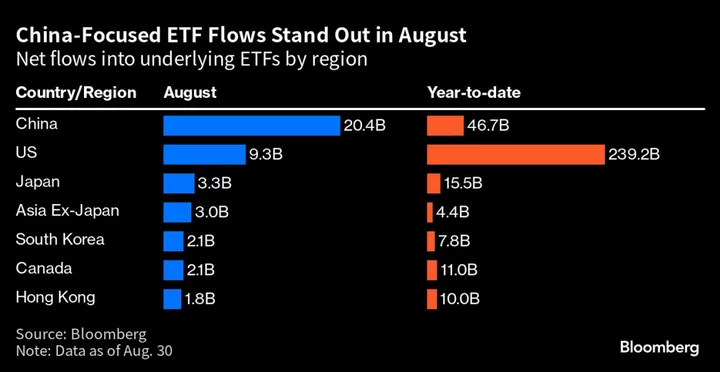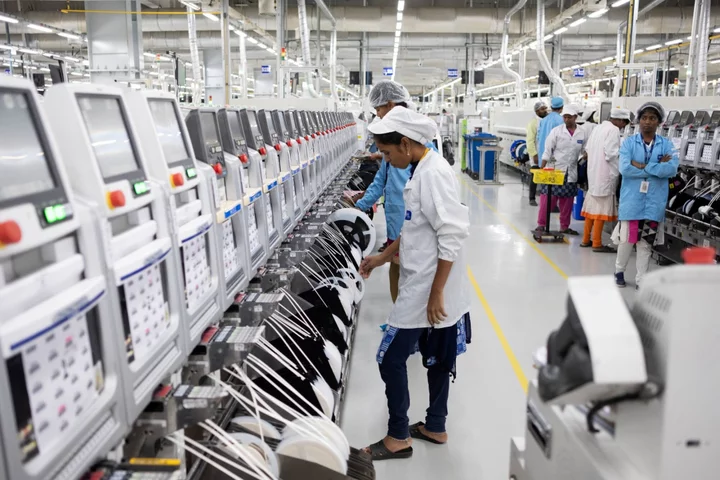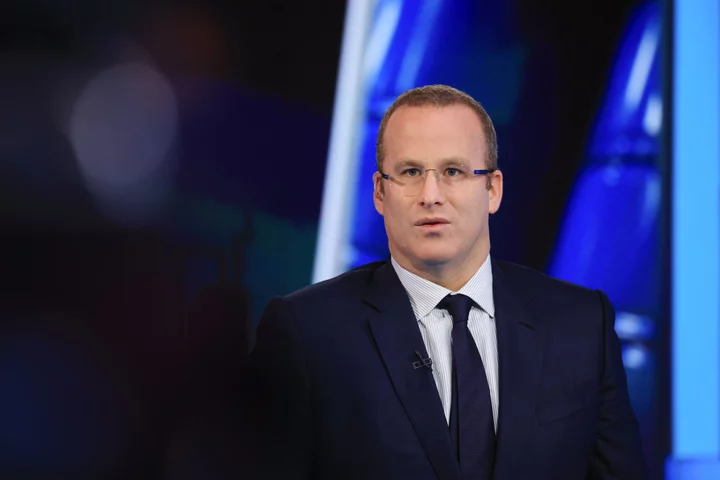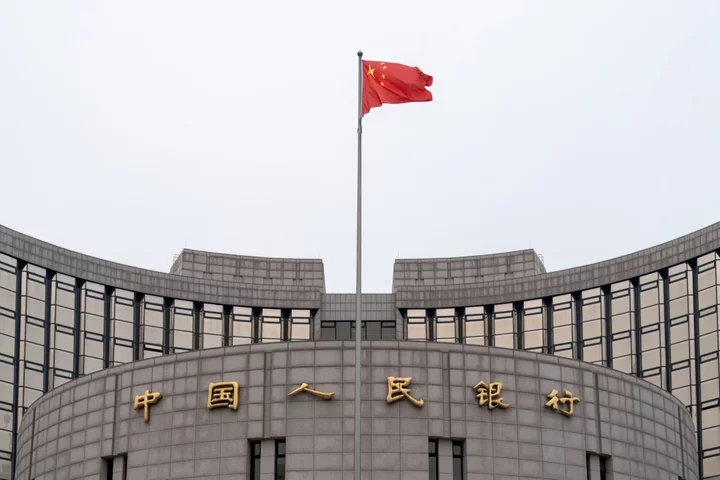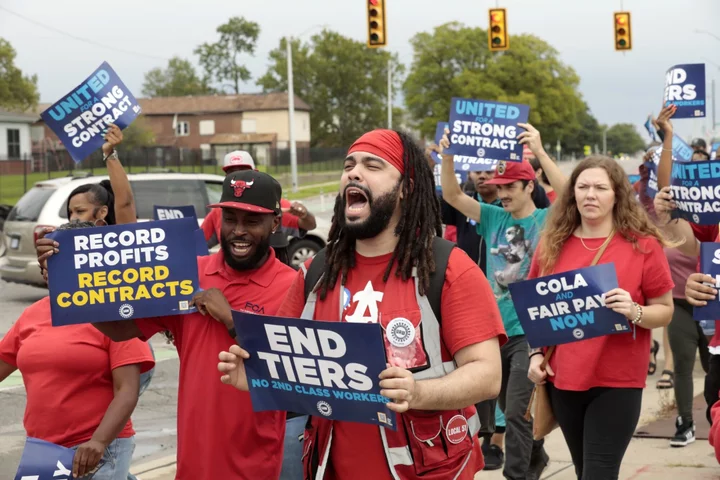Short-term Treasury yields once again advancing toward 5% hog the spotlight, but there’s another drama unfolding in a lesser-known corner of the US government bond market.
The yield on 30-year inflation-protected Treasuries is on the cusp of exceeding 2% for the first time in more than a decade. Whether it gets there and where it will stop if it does has bond investors on edge.
For some, a 2% “real yield” is a screaming buy following Federal Reserve interest-rate hikes totaling more than 5 percentage points over the past 18 months. For others, uncertainty about whether inflation has peaked — combined with the US government’s growing borrowing need — means that all types of long-term yields may need to be higher still.
Inflation-protected Treasuries pay interest on base amount that’s adjusted for inflation, so their yields represent a risk-free rate of return. Insulated from the effects Fed policy rates may have on future inflation, they’re also a barometer for the economy’s prospects.
The 30-year real yield last exceeded 2% in 2011. In the interim, it collapsed to levels around -0.50% in 2020 and 2021 after the Fed slashed rates and demand for inflation protection skyrocketed. A push to higher real yields looms as a test of investor sentiment.
“Our message is get into bonds, both nominal and real,” said Rob Waldner, chief strategist fixed income at Invesco. “Nominal growth is slowing and falling below nominal rates. There is a risk that the Fed is making a mistake as policy is tightening quickly now.”
A 30-year inflation-protected yield near 2% may prove irresistible to investors with long-dated liabilities such as pension funds and insurance companies. They’ve had limited interest during the past decade, said Michael Pond, head of global inflation-linked research at Barclays.
At 2%, “that investor base may come back,” Pond said. An auction of 30-year inflation-protected Treasuries on Aug. 24 “will be a litmus test of that.” The last auction of Treasury inflation-protected securities — a new 10-year maturity — on July 20 drew extremely strong demand at a yield of 1.495%, the highest for the product since 2010.
Some of the upward pressure on TIPS yields — as well as long-term nominal Treasury yields — reflects elevated uncertainty about the path of inflation. Measured inflation and survey-based inflation expectations declined this week, but crude oil rose to its highest level of the year, and health insurance is poised to start adding to price growth.
“There is a possibility we need a higher real and nominal yields,” said Michael Cudzil, portfolio manager at Pacific Investment Management Co. “Our base case is a meaningful slowdown, that leads to a recession and eventually brings rates down. But there is a chance we see more inflation premium in curves that we have not seen for a long time.”
Read More: Bond Market Inflation Gauge Shows Doubts About Swift Fed Victory
Meanwhile, sentiment is taking a beating. The longer the 30-year TIPS yield stays above 1.86%, where investors were expected to support it, “the more likely a renewed bearish push towards fresh cycle highs, with a medium-term target of the 2010 yield highs coming into view at 2.28%,” Edward Acton, a strategist at Citigroup Inc., wrote in a note Friday.

